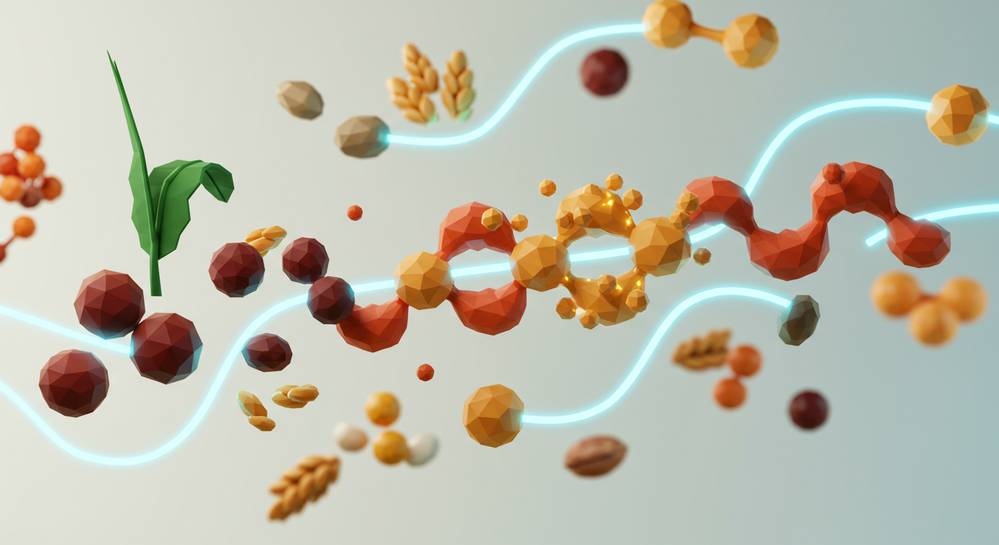Essential dietitian advice for a healthy plant based diet
Switching to a plant based diet is a fantastic choice for your health and the environment, but it requires careful planning to be successful. Getting reliable dietitian advice for plant based diets is the first step to ensuring your body receives all the nutrients it needs to thrive. This guide breaks down the essential principles you need to know, from mastering key nutrients to practical meal planning tips for long-term success.
Mastering key nutrients on a plant based diet
Essential dietitian advice for a healthy plant based diet
Meeting your nutritional needs on a plant based diet is entirely achievable with smart planning. While this lifestyle offers immense health benefits, some key nutrients require more attention to avoid deficiencies. This expert dietitian advice for plant based diets focuses on the most crucial vitamins and minerals. Creating a well planned plant based diet is the foundation for long term success and vitality.
- Iron: Boost non-heme iron absorption from lentils and tofu by pairing them with vitamin C rich foods like bell peppers or citrus.
- Vitamin B12: This is non-negotiable for strict plant based eaters. Obtain vitamin B12 from fortified foods like plant milks or a reliable supplement.
- Calcium: Protect your bones with calcium from fortified milks, tofu made with calcium sulfate, and leafy greens like kale.
- Omega-3 Fatty Acids: Support brain and heart health with daily omega-3s from ground flaxseeds, chia seeds, and walnuts.
- Vitamin D: Ensure proper calcium absorption with fortified foods, sensible sun exposure, or a supplement, especially in darker months.
Prioritizing these five nutrients forms the cornerstone of a successful transition. It removes the guesswork and empowers you to enjoy all the benefits of plant based eating with confidence. Consistency is more important than perfection.
The role of protein in plant based eating

The truth about plant based protein
Protein is a frequent concern, but meeting your needs without animal products is straightforward. The key is focusing on variety, not just quantity. A diverse intake of plant foods provides all the essential amino acids your body requires for muscle repair and overall function. This is foundational dietitian advice for plant based diets, shifting the focus from protein anxiety to mindful eating. You can easily build a high protein plant based diet.
Excellent sources of plant protein
- Legumes: Lentils, chickpeas, black beans, and peas are inexpensive and versatile protein powerhouses.
- Soy Products: Tofu, tempeh, and edamame offer complete protein, containing all nine essential amino acids.
- Nuts and Seeds: Almonds, chia seeds, and hemp seeds provide a boost of protein and healthy fats.
- Whole Grains: Quinoa, a complete protein, along with oats and brown rice, contribute significantly to your daily intake.
The outdated myth of combining proteins at every meal is no longer a concern. Your body creates a pool of amino acids from the foods you eat throughout the day. Simply aim for variety in your daily meals.
Practical meal planning and preparation tips

Building a sustainable plant based routine
Consistency is your greatest asset for long term success. Planning your meals ensures you eat a balanced, nutrient dense diet instead of reaching for processed convenience foods. This is crucial dietitian advice for plant based diets because preparation makes the journey enjoyable and sustainable. A little effort upfront saves you from making poor choices when you are busy or tired. This approach builds healthy habits that last.
How to build a balanced plate
A simple guideline for any meal is the plate method. Aim to fill half your plate with non-starchy vegetables like leafy greens, broccoli, and bell peppers. One quarter should be a quality plant protein source, such as lentils, tofu, or beans. The final quarter is for complex carbohydrates like quinoa, brown rice, or sweet potatoes. Always add a source of healthy fat, like avocado or a sprinkle of seeds, to complete your meal.
Smart snacking strategies
- Keep healthy options readily available to avoid temptation.
- An apple with peanut butter provides fiber, protein, and healthy fats.
- A handful of almonds or walnuts is a simple and satisfying choice.
- Roasted chickpeas offer a crunchy, savory, and protein rich snack.
When to consider supplements and professional guidance

Using supplements wisely on a plant based diet
A food first approach is always the best strategy for optimal health. However, certain supplements can act as a crucial safety net to fill nutritional gaps, especially on a strict plant based diet. Making informed decisions about supplementation is key to thriving long term. It is not about fixing a broken diet, but rather enhancing an already healthy one. This ensures you cover all your bases without over supplementing.
Commonly recommended supplements
- Vitamin B12: This is non negotiable for anyone eating a fully plant based diet. A reliable B12 supplement is essential for nerve health and energy production.
- Vitamin D: Many people are deficient, regardless of diet. A supplement is often recommended, especially for those with limited sun exposure.
- Omega-3s (EPA/DHA): An algae based oil supplement provides a direct source of these fatty acids, which are vital for brain and heart health.
Seeking professional guidance from a registered dietitian provides personalized advice tailored to your unique needs. They can analyze your diet and suggest specific foods or supplements, removing guesswork. This expert dietitian advice for plant based diets empowers you to make the best choices for your health journey.
Adopting a plant based diet can be a powerful step towards better health, but it requires mindful planning. By focusing on key nutrients, ensuring adequate protein intake, and preparing balanced meals, you can thrive. For personalized strategies and to ensure all your nutritional needs are met, trust the experts at Health Horizon Line to guide your journey.


0 Comment